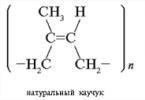People often ask the same question about “what does BMW have with diesel engines?”, or “which diesel should I buy”?
Instead of an answer, accept a short essay on the topic "diesel in BMW".
Diesel internal combustion engine has more high efficiency in full load mode and noticeably higher in partial load mode and idle move. A gasoline engine is hampered by the principles of its operation - the presence of a throttle, the formation of a mixture outside the combustion chamber, the inability to operate on lean mixtures. Partial load mode is inconvenient and extremely harmful for him. In this sense, the benefit of a diesel engine is absolute
- its average temperature is noticeably lower, and at partial loads and idle, a modern diesel engine may not even warm up to the nominal temperature at all operating temperature. Thanks to these features, the diesel engine is almost not afraid of traffic jams, and even more so of idling: it’s not so scary to bother it with everyday start-stop traffic jams. The heat emission of a diesel engine (turbodiesel) is not only lower, but also “smarter” - the presence of a turbine is almost a guarantee that in a traffic jam you are not loading the engine with excessive power - by low revs it almost doesn't work.
The bottom line, in terms of the load on the oil, which, by the way, is diesel engine always about 20% more than in a gasoline counterpart of the same displacement, diesel is qualitatively superior to gasoline engine.
You can also recalculate, for example, the average power released per volume of oil, etc. - in all this, the diesel internal combustion engine wins with a margin and "for a clear advantage"And if we also remember the “traditionalist” conservative habits and fads of changing the oil in a diesel engine every 7-10 thousand kilometers (well, of course, we have “dirty diesel fuel” - and advertising blatantly lies to us about EURO5, and that’s the oil already “black”), then diesel, from the point of view of the expected resource, is almost eternal even in conditions Russian exploitation. Let's add here a few more possible factors characterizing the likely favorable driving conditions of such cars - diesel engines are often bought by those who drive far and at high average speeds...
Total: a modern diesel engine differs significantly from a modern gasoline engine in terms of expected service life precisely due to a successful coincidence technological features. I’ll tell you exactly how much below.
Now the questions that are often asked on this topic:
How modern are BMW diesel engines?
BMW makes some of the highest quality and modern diesels- they are economical, high-torque and reliable. In the most modern versions, they are also very quiet, which cannot be said about most competitors. BMW latest For 20 years he has been doing nothing but turning his successful gasoline engines “into diesel engines,” trying to extract “ecology and economy” from them through monstrous technological tricks. The results, if you do not take into account victories in competitions such as "engine of the year", are actually disastrous. But the design of the diesel engine is devoid of a huge amount of technological and environmental waste: VANOS, Valvetronic, controlled thermostat, and so on. Diesels are just improving in technology, with minimal environmental problems. As of 2012, diesel unconditionally wins the gasoline/diesel battle.
What can you say about specific models?
M21 - never seen it.
M51 - seen a couple of times, an ordinary horse-drawn tractor.
M57- great option for X5. It seems strange to me on a sedan, although this is a matter of taste.
The N57 is a quiet diesel engine with an almost “gasoline” feel. If not for the short rev range, it would be difficult to distinguish it from a gasoline turbo engine.
N47/M47 - loud, but very economical motors. There are seemingly already solved problems with the timing belt, which are not at all easy to solve if you do encounter them. In any case, this is a choice to save money.
Are there any statistics?
Full measurement and inspection diesel internal combustion engines requires dismantling the injectors. This is not a quick or cheap procedure. I don’t have measurement statistics for these motors, and in general there are few requests for them. The reasons are explained in the next paragraph.
Resource?
Even with an unsuccessful “recommended” oil and equally unsuccessful analogues of this oil, you risk driving away without problems 200-250 thousand km or even more. And this is practically without oil consumption and on almost any of the BMW diesel engines. With the condition, of course, that the engine was not overheated and was operated normally. Subsequently, problems will arise approximately the same as with their gasoline counterparts. The processes in the CPG there are completely similar, they just happen more slowly and the threshold of visibility is thus pushed back to a guaranteed 5-7 years of completely trouble-free operation. The higher your annual mileage and the higher average speed- the further the moment of the onset of problems with oil consumption moves away. What the owner of a gasoline engine should worry about already at a mileage of 40-60 thousand (!), its diesel counterpart may not be bothered at all for the entire time he owns the car.
Problems?
I think the main problem fuel equipment- for a diesel engine it is really not cheap. One gas station filled with sand and repairs can surprise you with its cost. However, if you use “standard” oil, problems will definitely appear at the above interval, it’s just that most will not even consider them problems. The vast majority of petrol BMW owners show no signs of concern at all until the oil consumption reaches 1 liter per 1000 km.
In the case of a diesel engine, which most likely will not consume oil at all during the first years of operation, the owner will not be afraid of 1, 2 or even 3 liters per 10,000 km. Most likely, the logic “well, thank you for holding out for 5 years, and now you can forgive me” will work, instead of the reasonable logic “I haven’t eaten at all, why did I start now?”
1) Use of BMW Longlife-04 and BMW Longlife-12 FE oils in gasoline engines allowed only in European countries (EU plus Switzerland, Norway and Liechtenstein). Their use is prohibited outside this region.
2) “Other” includes all AG engines/models that are not mentioned in the above table, such as M10, M20, M30, M40, M42, M43, M44, M50, M52, M60, M62, M70, M73, etc. .d.
3) “Other” includes all sports engines/models that are not mentioned in the above table, such as B. S14, S38, S50, S50U, S52, S70, etc.
4) Vehicles with a gasoline engine and a diesel particulate filter for a gasoline engine can be identified by the vacuum hose that is installed on the particulate filter for a gasoline engine, as well as by additional equipment SA1DEA exhaust emissions standards RDE.
5) The use of BMW Longlife-14 FE+ oils in gasoline engines is permitted only in European countries (EU plus Switzerland, Norway and Liechtenstein), the USA and Canada. Their use is prohibited outside this region.
3.2 Recommended motor oils for diesel engines:
|
Engine |
BMW Longlife-01 |
BMW Longlife-04 |
BMW Longlife-12 FE |
SAE 10W-60 |
|---|---|---|---|---|
| 3 Cylinder: | ||||
| B37C15K0 | X | X | ||
| B37C15U0 | X | X | ||
| B37D15K0 | X | X | ||
| B37D15U0 | X | X | ||
| B37C15K1 | X | X | ||
| B37C15U1 | X | X | ||
| 4-cylinder engines: | ||||
| B47C20U0 | X | X | ||
| B47C20O0 | X | X | ||
| B47C20T0 | X | |||
| B47D20K0 | X | X | ||
| B47D20U0 | X | X | ||
| B47D20O0 | X | X | ||
| B47D20T0 | X | |||
| B47C20T1 | X | |||
| B47C20U1 | X | X | ||
| B47C20O1 | X | X | ||
| B47D20U1 | X | X | ||
| B47D20O1 | X | X | ||
| B47D20T1 | X | |||
| N47 uL; N47 oL | X | |||
| N47 S (5) | X | |||
|
N47 S (5) |
X | |||
| N47C16K1 | X | X (6) | ||
| N47C16U1 | X | X (6) | ||
| N47C20K1 | X | X (6) | ||
| N47C20U1 | X | X (6) | ||
| N47D16U1 | X | X (6) | ||
| N47D16K1 | X | X (6) | ||
| N47D20K1 | X | X (6) | ||
| N47D20U1 | X | X (6) | ||
| N47D20O1 | X | X (6) | ||
| N47D20O1 US | X | X (6) | ||
| N47D20T1 | X | |||
| M41 | X | X | ||
| M47, M47TU (5) | X | X | ||
|
M47TU (5) |
X | X | ||
| M47TU2 (1), (5) | X (3) | X | ||
| W16D16 | X | |||
| W17D14 | X | X | ||
| 6-cylinder engines: | ||||
| B57D30O0 | X | X | ||
| B57D30T0 | X | |||
| B57D30S0 | X | |||
| N57 | X | |||
| N57N | X | |||
| N57X | X | |||
| N57D30O1 | X | |||
| N57D30O1 US | X | X (6) | ||
| N57D30T1 | X | |||
| N57D30S1 | X | |||
| M21 | X | X | ||
| M51 | X | X | ||
| M57 | X | X | ||
|
M57TU (5) |
X | X | ||
| M57TU (5) (E60, E61 from 03/04) | X (2) | X | ||
| M57Top (5) (from 09/04) | X | |||
| M57TU2 (5) (from 03/05) | X (4) | X | ||
| M57TU2Top (5) (from 09/06) | X | |||
| 8-cylinder engines: | ||||
| M67 (E38) | X | X | ||
| M67 (E65) | X | X | ||
| X (4) | X | |||
1) In countries with prolonged frosts below -20 °C, oil marked 0W is recommended instead of 5W.
2) To increase the service life of the diesel particulate filter, it is recommended to use Longlife oils 04 since their introduction.
3) Can be used for vehicles without a diesel particulate filter (DPF).
5) TU2 = T2 / TOP = S
6) valid for vehicles from 2014
For informational purposes only. The information on this site is provided "as is", without any warranty of accuracy, completeness or currency. Under no circumstances will the Site Administration be liable to any party for any direct, indirect, special or other consequential damages as a result of any use of information on this Site. The administration reserves the right to make changes without notifying users about them.
What do you need to know when choosing oil for BMW engines? Which oil is suitable for specific engine? These are the two questions that concern us the most. BMW owners undecided on the choice of oil when it approaches planned replacement. First of all, you should remember that motor oils for BMW are divided into certified(admitted) and special(Special Oil). Moreover, according to the automaker’s specifications, for gasoline BMW modifications 1,3,4,5,6,7 series, the use of only those motor oils that have passed special tests and received official approval from BMW is allowed. For diesel versions of the same models, the use of universal motor oils is allowed, provided that they comply with the documentation requirements for each car model (according to ACEA classification). Motor oil approved by BMW must have the appropriate approval indicated on the packaging. Its absence indicates a lack of BMW certification; therefore, its use is not recommended.
Oils certified by BMW are named Longlife. These oils meet ACEA:A3/B3 specification standards and have been tested by BMW for their ability to provide extended service intervals. Maintenance(OilService). The use of these oils is allowed both in summer and winter.

Since 2001, BMW began producing new generation engines, which entailed stricter requirements for oil properties. As a result, long-life oils were divided into four categories:
1. Longlife-01- oils corresponding full list BMW requirements for technical fluids and recommended for use in N62/N42 engines. In addition, these oils are recommended for use in older BMW engines (manufactured before February 2000), except S62 (e39), CNG, M43.
2. Longlife-01 FE (Fuel Economy)- oils with the same standards as Longlife-01, but with a lower viscosity, which results in reduced fuel consumption. The use of these oils is allowed only in those engines design features which allow the use of low viscosity oil.
3. Longlife-98 (original title- Longlife) - oils that meet standards with extended maintenance intervals (OilService), introduced in 1998. The use of these oils is recommended for BMW with engines equipped with forced ignition (except S54, N42, as well as S62 (E39) manufactured before February 2000).
4. Longlife-04- this tolerance was introduced for motor oils that have passed the full test cycle at BMW. Oils with this approval can be used in modern BMW engines and is not recommended for vehicles manufactured before 2004.

Category special oils (Special Oil) as well as the certified one meets the ACEA:A3/B3 specification standards and is an earlier version of BMW Longlife category oils. The use of special oils is recommended for older BMW models with a replacement interval of up to 15,000 kilometers (according to OilService regulations). Special oils are all-season. The exception is oils with a class SAE viscosity 10W-X - its use is allowed at an ambient temperature of at least 20 °C.

It should be remembered that for BMW engines it is recommended to use only motor oils that meet the above recommendations. The presence in the name of oils of such formulations as “fully synthetic (easy-flow) motor oil”, etc., does not indicate the possibility of their use in BMW engines and can only be considered as a general name. The decisive factor in determining the suitability of the oil can only be an indication of approval from BMW.

In conclusion - a few words about oils for new cars and engines after overhaul. And if hardly anyone will produce independent replacement oils outside the official service in new cars, then for owners of BMWs with engines after the “overhaul” it will not hurt to know that in BMW engines so-called “break-in” oils are not used. Therefore, when changing oil in engines after major overhauls (as well as for new engines), it is recommended to use only the above-listed certified oils.

| Engines/oils | Longlife-01 | Longlife-01FE | Longlife-98 | Specialist. oils | SAE 10W-60 | M610 | Specialist. ACEA |
| M43TU | + | + | |||||
| M43/CNG | + | ||||||
| M47 | + | + | + | + | |||
| M47TU | + | + | + | + | |||
| M47TU after 03/2003 | + | ||||||
| M51 (e34/36) after 09/1995 | + | + | + | ||||
| M52TU | + | + | |||||
| M54 | + | + (from 08/2001) | |||||
| M57 | + | + | + | + | |||
| M57TU | + | ||||||
| M57TU after 03/2003 | + | ||||||
| M62LEV | + | + | |||||
| M67 | + | + | + | + | |||
| M67 (e65) | + | ||||||
| M73 (e31) after 09/1997 | + | + | + | ||||
| M73 (e38) 09/1997 - 08/1998 | + | + | + |



